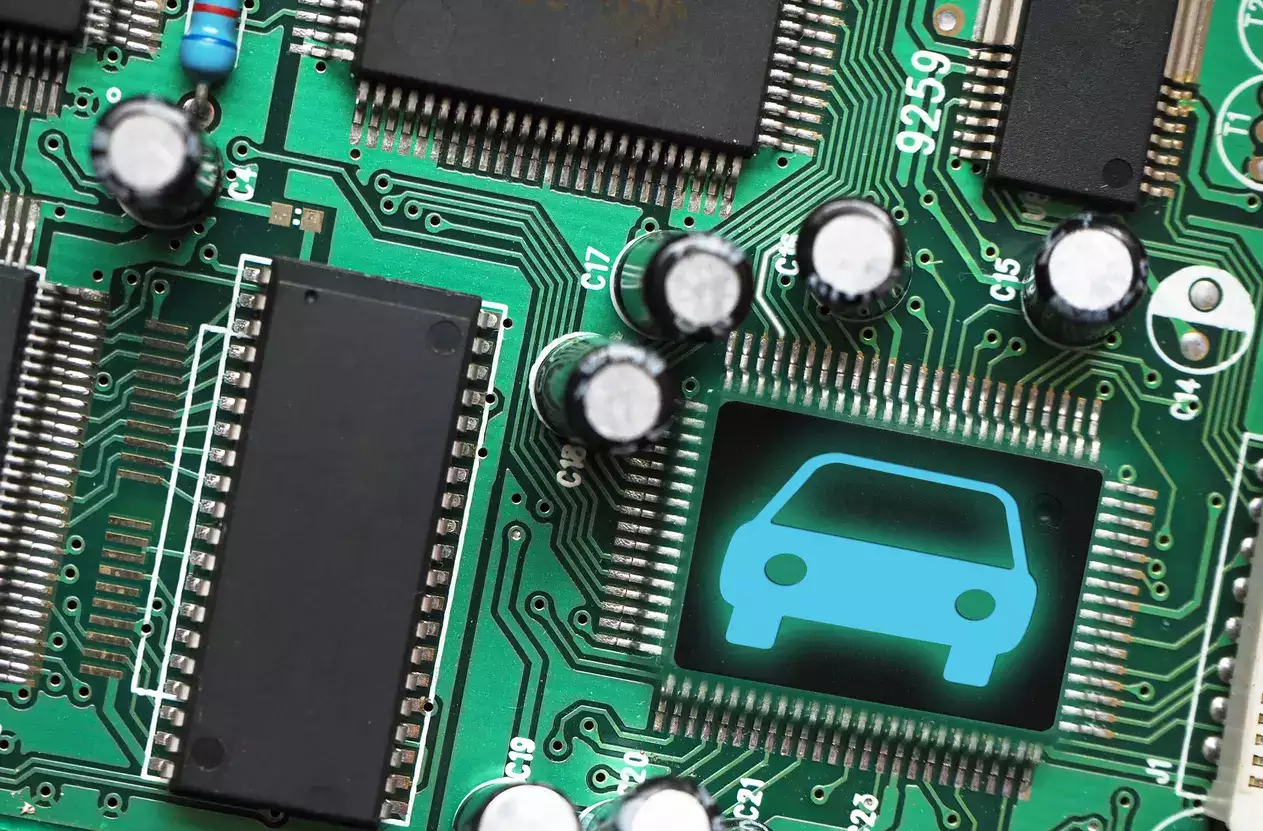 AI chips will remain at the forefront, driving the automotive industry into its next era of transformation.
AI chips will remain at the forefront, driving the automotive industry into its next era of transformation.The last decade has witnessed significant changes in the automotive industry, with cars evolving into smarter, safer, and more efficient vehicles. With trends like software-defined vehicles, autonomousdriving, and electric vehicles (EVs) ushering in a new era of innovation, digital technologies are reshaping vehicles from the ground up.
As this rapid evolution opens new avenues in the industry, it also brings in the need for investments in infrastructure and integrated chip development. In this competitive market, AI-powered semiconductors are revolutionising the automotive sector, specifically in EVs and autonomous driving, and addressing several significant challenges.
Semiconductors and vehicle efficiencyIn a world that is increasingly moving towards and electric vehicle (EV) future, it is semiconductors which are powering them from behind the scenes, playing a critical role in various aspects of EVs, from battery management to adaptive cruise control, playing a crucial role in improving their safety and efficiency. As a major element in optimising lithium-ion battery performance, extending their lifespan, and improving energy efficiency, which play an important role in reducing waste and supporting sustainable mobility., semiconductors form a key element in battery management. Additionally, they facilitate the wider adoption of EVs by consumers through the development of high-speed and efficient EV chargers.
Advanced semiconductors are the key component ensuring the reliability of Advanced Driver Assistance Systems (ADAS), sensors, and infotainment in modern vehicles. In the near future, the transformation in the design of vehicles, alongside concepts like Vehicle-as-a-service, will provide smarter in-cabin experiences, efficient charging, and better traffic management systems. A point to be noted here is that EVs demand up to thrice the semiconductor content than traditional vehicles. This could be a contributing factor to the Indian semiconductor market being anticipated to reach USD 32 billion by 2025, largely driven by demand from the EV sector.
AI-optimisedchips in autonomous drivingOne of most pathbreaking advancements brought by the digital transformation in the automotive industry is autonomous driving. This has been supported by advanced artificial intelligence (AI), sensor technology, and high-speed connectivity. At the epicentre of this transformation are AI-optimised semiconductors, which are responsible for key functions like real-time data processing, sensor fusion, and complex decision-making. These advancements are increasingly propelling us toward a future where self-driving cars are the norm.
Sensor fusion technology is responsible for integrating data from LiDAR, radar, cameras, and ultrasonic sensors to give cars a comprehensive understanding of their surroundings, functioning as the "eyes and ears" of autonomous vehicles. They create a more accurate environmental model that is essential for split-second driving decisions by combining the data from these sensors. It is through AI chips that this technology is able to process vast amounts of data, effectively ensuring the accuracy, safety, and reliability of the vehicle’s real-time decision-making.
While autonomous driving promises safer roads and a more relaxed driving experience for consumers, it also requires rigorous testing, regulatory compliance, and reliable AI algorithms for navigation, hazard detection, and object classification, for which AI-optimised semiconductors act as major contributing factor in advancing this technology and bringing them closer to everyday use.
Intelligent transportation systemsLooking at the automotive industry from a bigger picture beyond individual vehicles, semiconductors are responsible for intelligent transportation systems (ITS), which are an important aspect of modernising traffic management and vehicle-to-infrastructure communication. AI-optimised chips enable vehicles to communicate with traffic lights, road sensors, and other cars, enhancing road safety, reducing congestion, and improving traffic flow.
Another area where AI chips play an important part is Vehicle-to-Everything (V2X) communication,which allows cars to interact with their environment that includes other vehicles, infrastructure, pedestrians, and cyclists. AI-powered semiconductors are responsible for processing this V2X data in real-time, ensuring quick responsiveness in vehicles to unexpected events such as traffic jams or road hazards, providing room for smarter navigation, real-time traffic updates, and improved accident prevention.
The integration of semiconductors into intelligent transportation systems is shaping the future of smart cities, where connected vehicles and infrastructure work together to create safer, more efficient urban mobility.
Future outlookLooking ahead, AI-powered semiconductors will continue to drive innovation in autonomous vehicles, electric cars, and intelligent transportation systems. Characterised by an increased focus on edge AI, energy efficiency, customisation, the industry is poised to witness significant transformation through the development of more specialised AI chips which can support these functions. The wider distribution of robotics applications brings about a growing need for AI chips optimised for edge computing, enabling real-time decision-making without relying on cloud connectivity. The trend towards customisable AI chips, like FPGAs and ASICs, is likely to continue, allowing for more specialised and efficient solutions in robotics applications. Furthermore, AI chips are expected to be increasingly integrated with other emerging technologies like 5G, IoT, and quantum computing, further enhancing their capabilities in robotics.
Moreover, as autonomous vehicles become more mainstream, AI chips will play an increasingly critical role in predictive maintenance. These chips will enable vehicles to self-diagnose issues and alert drivers before critical components fail, reducing downtime and improving overall safety.
In a nutshell, AI-powered semiconductors are revolutionising the automotive industry, particularly in the fields of electric vehicles and autonomous driving. From improving vehicle efficiency to enabling real-time decision-making and intelligent transportation systems, advanced semiconductor technology is paving the way for a safer, smarter, and more efficient future of mobility. As these innovations continue to unfold, AI chips will remain at the forefront, driving the automotive industry into its next era of transformation.
